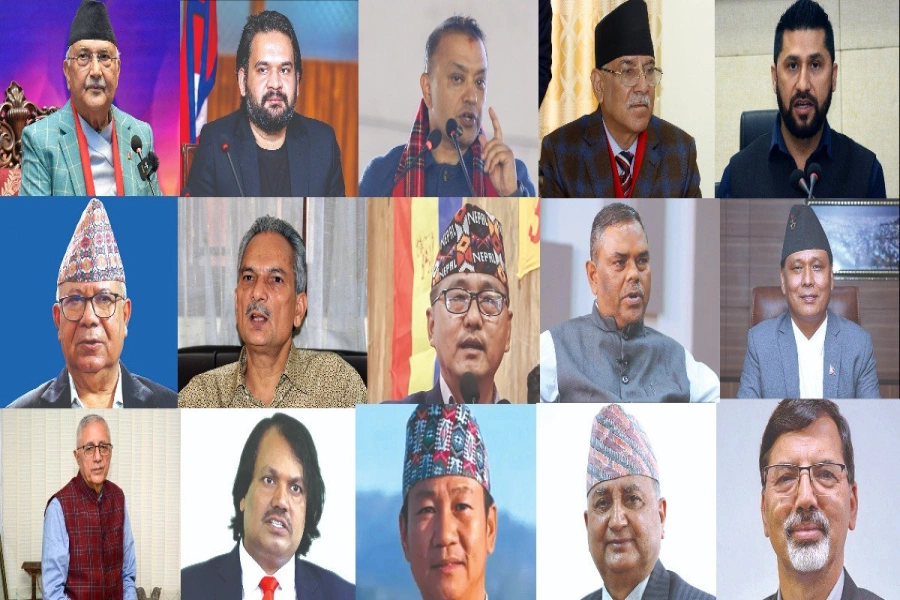Since that day in the late 1990s I have been listening to Motörhead, on and off, for over a decade and a half. The band's line-up kept changing, but bassist and lead singer Lemmy, in his black fatigues, was the one constant. Lemmy, I soon learned, abused every imaginable drug, drank wildly, had sex with random women, and ate only junk food. With his fast life, he was lucky to have passed 50, I remember thinking at the time. Well, the lanky body of Lemmy endured this constant abuse better than I thought. Lemmy eventually died on December 28th, 2015, four days after his 70th birthday.
Lemmy and his band, although considered pioneers in heavy metal, never had the fan following of the likes of Metallica and Guns N' Roses, and certainly not in Nepal. Many of my friends who listened to rock hadn't even heard of Motörhead. But, apparently, some of our younger lads have.
The other day, I boarded a microbus to Kirtipur. Lodged in the long backseat were a bunch of young boys barely out of school. To my surprise, they were discussing Motörhead and how they would miss Lemmy; one of them had just learned the guitar riff of Aces of Spades.
I don't get to listen to much rock music these days. As you age, your taste also changes, as you 'cultivate' your palate for things more refined, slower, classier—Mozart, Jagjit Singh or our very own Narayan Gopal. It's part pretence, acting out your role of a mature adult. But part of the mellowing down is natural, shaped by the treasure trove of experiences you collect on the way. You also learn as you grow that the larger-than-life characters like Lemmy and Jagger are mortals, too.
But unlike you and me, they are world-famous, they have been to places they liked, burned some serious dough, picked up girls they fancied, done things you couldn't imagine was possible with your limited means and abilities. Unlike you, they also had a host of problems: drugs, STDs, broken relationships. As you grow yesterday's idols more and more resemble grown up kids incapable of looking after themselves. Or so you rationalize the otherwise intolerable difference in fame and fortune between you, a complaining, cribbing unknown, and your carefree mic-wielding idol whose catchy creations dance on everybody's lips.
You realize it could have been you up there on stage. Weren't you too repeatedly jilted and as often bullied? Didn't you also battle addiction? Or struggle, oh-so-hard, to climb the first few rungs of your career ladder? So how come someone becomes world-famous overnight and someone else from the same background, you precisely, becomes a no-body? The unfairness of
it all!
The kind of unfairness Lemmy, himself bullied in school, liked to talk about in his songs; the unfairness at the heart of many a fine English comic novel that Lemmy liked to read between gigs.
He would perhaps have liked Howard Jacobson's The Making of Henry, named after the troubled central character of the novel. What troubles Henry, who is pushing 60, the most is that his half-wit bully back in school, instead of being punished by fate, is now living it up as a famous screenwriter and director in Hollywood. The big "Hovis-head" Belkin doesn't leave Henry alone even after his death. Henry, green with envy, cannot understand why English newspapers should fall over themselves to extol the nonexistent virtues of the supposed Hollywood superstar, who in reality was a lowly scumbag when he lived.
Many were, likewise, jealous of Lemmy's high life. But there were more serious criticisms, too, for example over his collection of Nazi memorabilia and his open display of Confederate symbols. Why did he do it? "I've always liked a good uniform," Lemmy would nonchalantly reply, "and throughout history, it's always been the bad guys who dressed the best: Napoleon, the Confederates, the Nazis."
That's the way Lemmy liked to play the game, his own uncompromising way. As happens in the universe of Triple H, anything he fancied went for Lemmy. For the troubles they took Lemmy's critics—good or bad, they were the same to him—invariably got a middle-finger salute.
biswas.baral@gmail.com
Motorhead’s Lemmy was supposed to be on Josh Homme’s new ‘Deser...







































